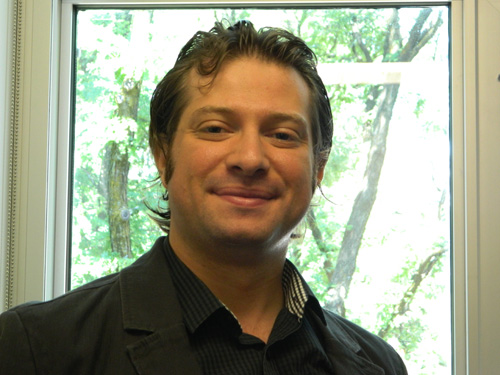
The Internet of Things. It sounds like science fiction, but new technologies are bringing it closer to reality. Newly-appointed U of G engineering professor Fadi Al-Turjman explains: “The idea is that you are connecting everything, using sensors and RFID (radio-frequency identification) systems.”
In fact, we’re already using some simple applications of this idea. When you stay in a hotel today, you may be given a card that you simply hold near a reader on the door of your hotel room. The door unlocks and you can enter the room. When you buy clothes in a store, the cashier removes a plastic RFID tag at the check-out. If he forgets, the tag will set off an RFID reader as you attempt to walk through the exit, and alarms will sound.
“Moreover,” says Al-Turjman, “my office lights in the School of Engineering turn on and off automatically based on my presence.”
But these are just the beginning. Wait until you see how this technology can transform your driving experience.
“Nowadays, cars have many sensors. They can even parallel park themselves and sense when vehicles are in your blind spot,” points out Al-Turjman. “As we expand the connections, they will be able to communicate with other cars to warn you when a route is getting too busy or has slowed down, and they will be able to tell you the location of the nearest gas station or the nearest restaurant that suits you. The car will also be able to identify who is in the car and adjust its settings – the seat position, the radio station, the A/C temperature.”
Those things sound like nice features, but Al-Turjman says the Internet of Things could actually be a life-saver: when cars can communicate with each other, more than 90 per cent of traffic accidents will become preventable.
It will help the business world too. This concept could simplify restocking: when the last few items are left on the shelf, they could sense their loneliness and automatically re-order more without the need for human intervention.
The Internet of Things will require something else Al-Turjman is researching called “information centric networks.” He explains that information is currently stored in a physical location, identified in Internet terms by an IP address. “The problem is that if you are going to create the Internet of Things, you will end up with an almost infinite number of addresses to link to – and that’s not possible. So we need to find another way, and that’s locating information by the name of the information, not the physical location of the information.”
Google, he says, tries to emulate this by searching for the words you want and providing links to the appropriate IP addresses. “In the future, the network itself will do this. This will completely change the old concept of a network and what it does.”
There are some design issues that Al-Turjman and his fellow researchers are sorting out. Naming is one: how do they create a workable system of assigning names to all the possible data sources? Should a hierarchical system of naming be developed? “There are different strategies that people are attempting, and we are trying to find out which works best,” says Al-Turjman.
Though Syrian in background, Al-Turjman was born and grew up in Kuwait, where his father was a mathematics teacher. “I owe my success to my father,” he says.
After earning his bachelor’s and master’s degrees in computer engineering at Kuwait University, Al-Turjman came to Ontario to complete his PhD in computer science at Queen’s University in Kingston. He then did two years of post-doc work at Queen’s with researcher and professor Hossam Hassanein; Al-Turjman describes him as “awesome.” As well as a lengthy list of published articles, two patents came out of his graduate research. He joined the U of G faculty this summer.
Life in Canada, he says, is “hugely different” than life in Kuwait. “I really love having four seasons of weather. I’ve also found people here very friendly and collaborative.” In his free time, he enjoys playing sports and writes poetry.